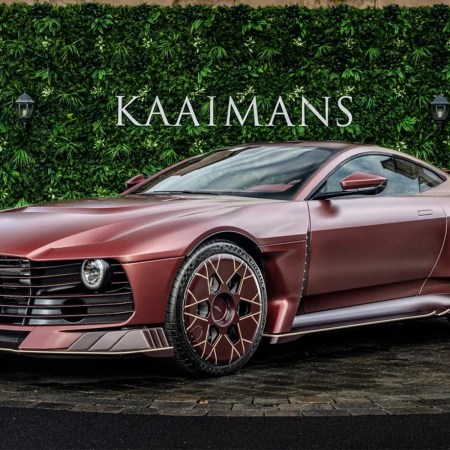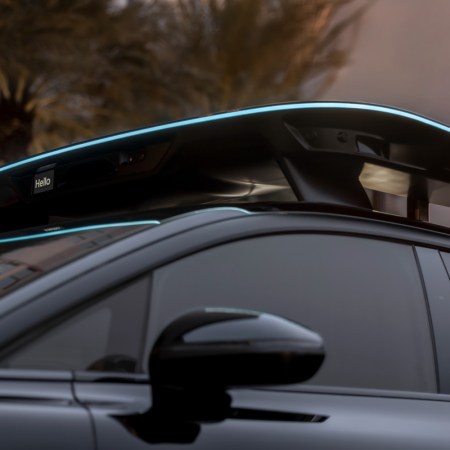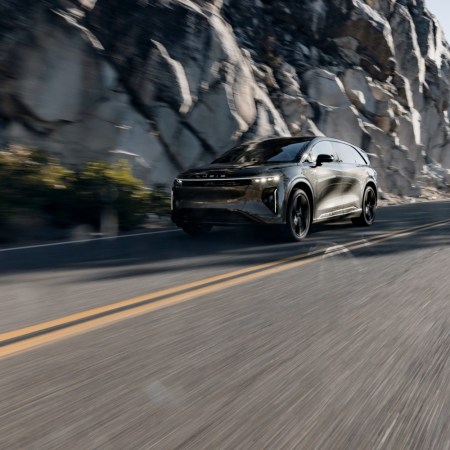The EV industry seems to be on the cusp of an automotive revolution, but there are still many obstacles in its way. In practical terms, most electric vehicles (Tesla being the sole outlier) have less than ideal range, charging takes much longer than fueling at a gas station and there aren’t nearly as many EV chargers available. Then there’s the issue of electricity from non-renewable sources and the mining needed for the most popular lithium-ion batteries, canceling out some of the environmental benefits. But what if there was a battery that could solve all those problems?
British engineer Trevor Jackson claims to have invented one at his company Métalectrique. It’s not a better lithium-ion battery, or even a solid-state battery a la James Dyson, but an aluminum-air fuel cell. Yes, it’s not technically a battery, but it still produces electricity. And according to the Daily Mail, it’s capable of 1,500 miles of range and will start being introduced in vehicles in 2020.
Here’s how aluminum-air cells work: Aluminum is dipped into an electrolyte, triggering a chemical reaction that produces electricity. As the Daily Mail notes, while they were developed in the ‘60s, they haven’t found widespread use “because the electrolyte was extremely poisonous, and caustic.” However, Jackson claims to have solved this original ingredient problem (he says he drinks his proprietary electrolyte formula in front of investors to prove it), as well as the problem of using expensive pure aluminum by using a “much lower-purity metal.”
So we reportedly have a fuel sell that’s safe, cheaper and less taxing to the environment, now what about the range? “Accredited tests have shown that, weight for weight, Jackson’s fuel cell produces nine times as much energy as lithium-ion,” writes the Daily Mail. For example, he says that if you replaced a Tesla Model S battery pack with one of his aluminum-air cells of the same size (though it would weigh less), the car’s range would increase from 370 miles to 1,500 miles.
Aluminium-Air is zero-CO2, recyclable, sustainable and has a range of 1500 miles in a car. Lithium has none of the above. Electric vehicles need a new battery and we are developing it @metalectrique https://t.co/YFUfcjgk4h #AluminiumAir #climatechange #ElectricCar #COP25 pic.twitter.com/WtI21zb0i7
— Métalectrique (@metalectrique) July 5, 2019
The key difference here is that since these fuel cells aren’t batteries, they can’t be recharged. Instead, they need to be replaced. Jackson equates it to changing a propane tank, and claims the fuel cells can be recycled cheaply (compared to current lithium-ion batteries which are expensive to recycle). So instead of charging stations, his technology would need battery swapping stations.
For that, Jackson and Danny Corcoran say they are in talks with two supermarket chains in the U.K. Corcoran is the CEO of Austin Electric, an engineering firm that now owns the brand of the historic Austin Motor Company, which has agreed to put the aluminum-air cells into “thousands” of electric vehicles next year.
“It can help trigger the next industrial revolution. The advantages over traditional electric vehicle batteries are enormous,” Corcoran told the Daily Mail. Does that sound like a lot of hot air? In the wild west that is the EV industry, it’s par for the course. On the other hand, no one knew who Elon Musk was eight years ago, so we’ll be keeping our eyes on Jackson, Métalectrique and Austin Electric.
Subscribe here for our free daily newsletter.
Thanks for reading InsideHook. Sign up for our daily newsletter and be in the know.



















